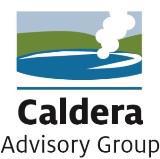Each Local authority in the Bay of Plenty region is a member of the Bay of Plenty CDEM Group. The Group's functions, duties and powers are set out in The CDEM Act 2002. The Group is established in accordance with Section 12 of the CDEM Act 2002 as a Bay of Plenty CDEM Group Joint Committee under the Local Government Act 2002 and operates under a Constitution. The Joint Committee has powers that are reasonably necessary to enable it to perform its functions, including the power to delegate functions to members, the Group Controller, or any other person.
Members of the Bay of Plenty CDEM Group are:
The Joint Committee oversees the delivery of the functions, duties and power of the CDEM Group, under The CDEM Act 2002. The Joint Committee has a Constitution that guides how the Group operates, how decisions are made and its functions and roles.
Under the Bay of Plenty CDEM Group Joint Committee's Constitution, each member's representative has full delegated authority to exercise the functions, powers, and duties of members under the CDEM Act 2002. Each member's representative has delegated authority to vote and make decisions on the behalf of the member. The Joint Committee oversees the delivery of the functions, duties, and power of the CDEM Group, under the CDEM Act 2002.
The Coordinating Executive Group (CEG) is established under The CDEM Act 2002, essentially to provide management support to the Bay of Plenty CDEM Group Joint Committee. CEG operates under a Terms of Reference, with all members having equal voting rights and is responsible for:
Coordinating Executive Group Membership
Each local authority member is represented on CEG by its Chief Executive (or an alternate representative who has been given delegated authority to act for the Chief Executive).
All other members are senior representatives of their organisation. This ensures members have a strategic overview, can implement decisions within their organisations, and are able to commit resources:
Co-opted Members
Co-opted members have the same voting rights as other members.
Non-voting Advisors
Group Controller
Section 18(2) of The CDEM Act 2002 outlines the general power of the CDEM Group. These general powers are delegated to the Group Controller. They include recruiting and training volunteers; conducting training exercises; issuing and controlling the use of signs, badges, insignia and identified passes; providing and operating warning systems; providing communications, equipment, accommodation and facilities; and any other powers necessary to give effect to an emergency management plan.
Section 76 of The CDEM Act 2002 outlines the power to require information that their opinion is necessary for the exercise of civil defence emergency management. The Group Controller also has specific powers in a declared State of Emergency.
Local Controller
Local Controllers are also delegated the general powers set out in Section 18 (2) of The CDEM Act 2002 and powers under Sections 76 and 85. These are the same as for the Group Controller. Local Controllers are required under Section 27 (2) to follow directions given by the Group Controller during an emergency.
Unlike the Group Controller, Local Controllers do not have the powers of Sections 86 - 92 and 94 conferred on them by The CDEM Act 2002. The Group must direct Local Controllers to carry out these power through their appointment.
In accordance with Section 88 of the CDEM Act 2002, the Bay of Plenty CDEM Group authorises Local Controllers to close roads and public places in areas where a State of Emergency is in force.
Group Recovery Structure
Recovery is led by the Bay of Plenty CDEM Group Joint Committee, which determines the priorities and policy. This is supported at the strategic level by the Coordinating Executive Group (CEG). Operationally the Group Recovery Manager coordinates the recovery efforts between agencies and local authorities and ensures the directives and priorities set by the Bay of Plenty CDEM Group Joint Committee and CEG are implemented. A Group Recovery Office may be set up, depending on the size and complexity of the event.
Group Recovery Manager
The role of the Group Recovery Manager is to:
The Group Recovery Manager role commences during the response phase and ceases upon the completion of the exit strategy.
Local Recovery Manager
The role of the Local Recovery Manager is to:
The Local Recovery Manager primarily liaises with:


Introduction
The Caldera Advisory Group (CAG) formed in late 2010 to provide a specific mechanism for national and local authorities, the science community and other stakeholders to share hazard information relating to the eight caldera volcanoes in the Taupo Volcanic Zone. In particular, how caldera unrest (i.e. not eruptive activity) would impact on the social and economic environments and focusing on what measures can be taken to manage these impacts.
The current members of the CAG steering committee are:
Background
Previous unrest episodes in New Zealand and similar volcanoes overseas have resulted in months to years of earthquake swarms, metres of deformation and self-evacuations. To this end, a Caldera Advisory Group (or CAG) involving a number of key agencies has been established to progress the thinking and planning from a caldera unrest event. The Okataina and Taupo Volcanic Centres are regarded as some of the most active caldera systems in the world, and yet little has been done to prepare for the consequences of an unrest event, or a resulting low frequency but high impact eruption. Caldera unrest consists of earthquakes, ground deformation where gas flux occurs frequently and can pose hazards which need to be adequately managed.
CAG Formation
The impetus behind the CAG formation was twofold: firstly, the science advisory groups based on the Auckland, Central Plateau, and Taranaki volcanoes highlighted the gap in advice available for local government and other agencies dealing with the effects of caldera volcanoes. Secondly, it has been identified that caldera unrest could last for significant periods of time (years to decades) and the effect of this would have a profound impact on the social and economic environments. The initial work of the CAG is to identify the major potential impacts of caldera unrest and to address each of the areas identified. Caldera unrest is also of "national interest" given the likely impacts, multi-CDEM Group involvement and the lengthy duration of any unrest event. The BOP and Waikato CDEM Group Plans rank caldera unrest as the 3rd and 4th highest hazard respectively.